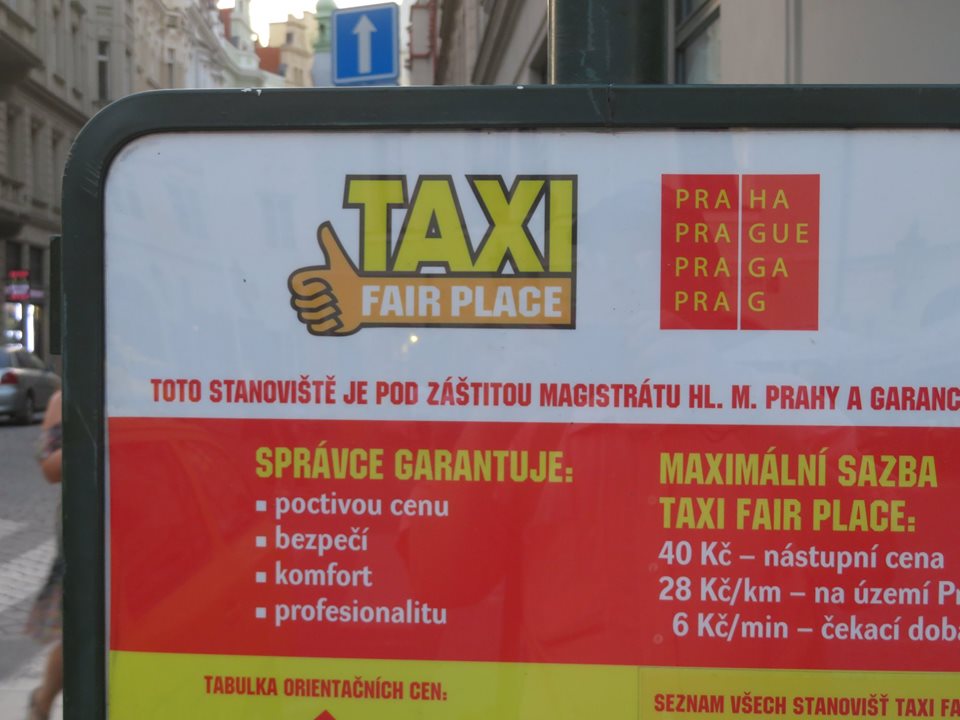The Fair Place taxi stands in Prague have proven to be unpopular, and the city is closing the remaining ones.
The Fair Price taxi stands were designated places where taxis that guaranteed a fair price could wait for customers. The program was introduced in 2002 as away of combating taxi drivers who overcharged.
Currently, only five
out of the 29 designated sites are leased. The Technical Road
Administration (TSK) will terminate the remaining locations within
six months.
Deputy Mayor Adam
Scheinherr (Praha sobě)
said the locations no longer served any purpose, and that they
provided no guarantee of a fair price.
“Fraudulent drivers just wait for a few tourists […] For example, a total of 24 random ‘mystery shopping’ events took place at the site near Wenceslas Square on Jindřišská. When taxis were picked up by City Hall employees, only five of them were not intentionally overcharged. In two cases the taxi driver gave a ride worth CZK 82 and wanted CZK 500,” Scheinherr said.

The Prague Institute
of Planning and Development (IPR) will now prepare a study of what
will happen to the vacant places. According to Scheinherr, most of
them will likely be used for residential parking.
Scheinherr
added that the city needs to respond flexibly to the time we
live in. “It is clear from our analyzes that with the advent of
mobile applications, when it is possible to order a pick-up from
anywhere, the use of taxi stands is slowing down,” he said, adding
that applications by taxi companies to use the spaces fell short of
the minimum requirements.
The City Council
said that the abolishing the stands won’t cost the city any money.
The city will no longer have to supervise the locations, which will
free up police resources.
According to the
City Hall, there are 9,800 taxi drivers in Prague, another nearly
3,000 drivers use Uber and Bolt (formerly Taxify) for alternative
carriers.
The first alternative taxi services became available in Prague five years ago. This led to protests from about unfair competition, as the app-based services did not have to meet the same rules.
Uber, one of the
main app-based ride services, reached an agreement with the Czech
government in March 2018 on issues concerning taxes and trade
licenses, so the drivers would no longer be part of the gray economy.
The popularity of
alternative services is in part due to the poor reputation that taxis
have in Prague.
Many City Hall
administrations have tried to tackle the issue of drivers who
overcharge. In April 2017 signs were put up near popular tourist
spots informing people of the proper rates. One sign warned that taxi
drivers often charge more than 10 times the official rate, making it
one of the highest in Europe.
The Czech News
Agency reported in 2015 that one-third of taxi drivers overcharged,
based on spot checks made by city inspectors.
In one of the most
famous incidents, in January 2005 then-mayor Pavel Bém (ODS) dressed
up as an Italian tourist and was charged five times the official rate
for a short trip to Prague Castle. In another cab, he was charged
double for paying in euros.












 Reading time: 2 minutes
Reading time: 2 minutes 
























